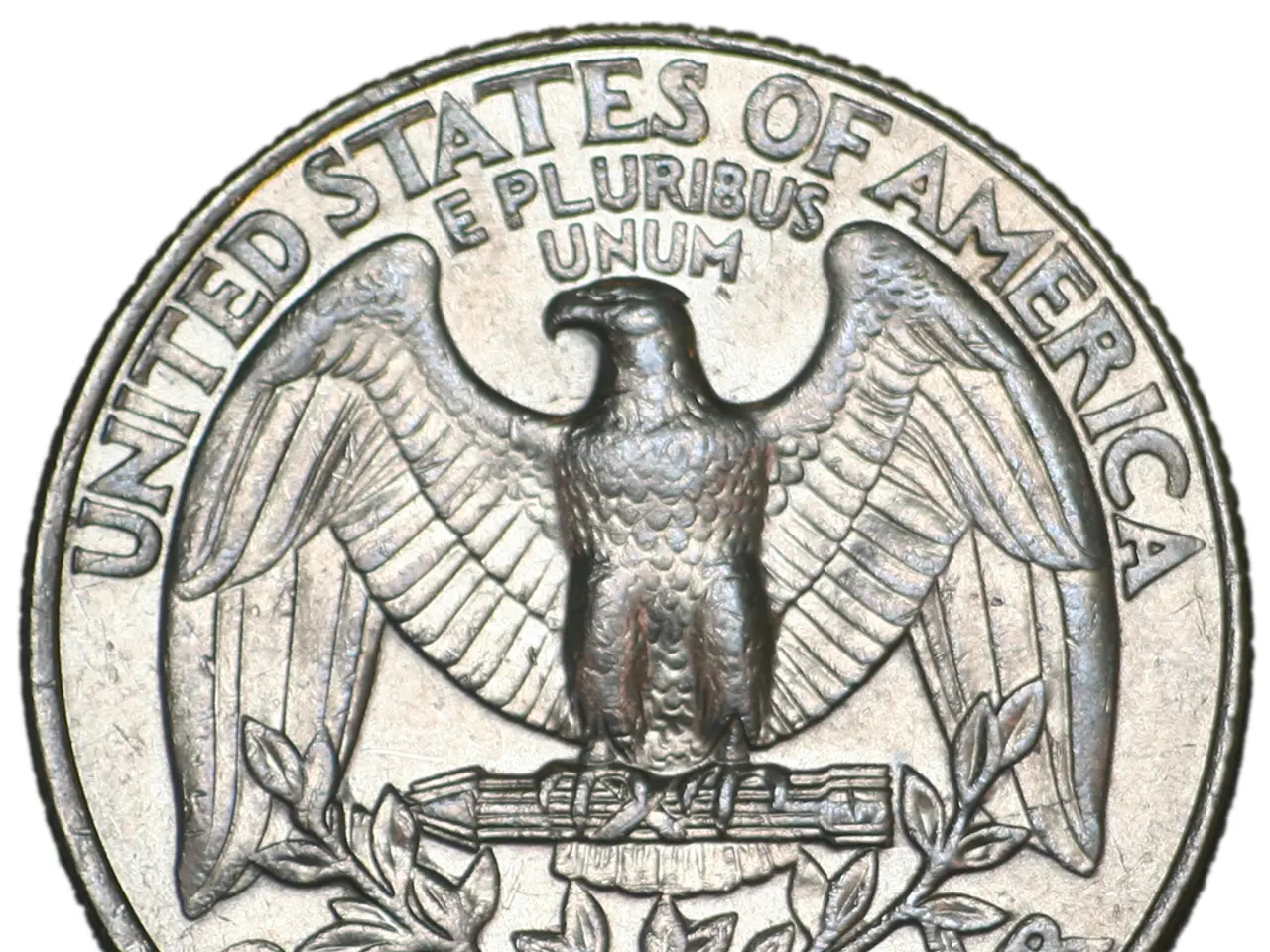Binance's conflicts with Nigeria: A chronicle of the ongoing developments
The world's largest cryptocurrency exchange, Binance, is embroiled in a legal battle with Nigerian authorities over cryptocurrency regulation. The current dispute centers on a significant tax dispute, with Nigeria's Federal Inland Revenue Service (FIRS) alleging that Binance owes $2 billion in unpaid taxes, fines, and interest for 2022 and 2023, plus $79.5 billion in damages.
The controversy began with concerns over currency manipulation and has escalated into a full-blown legal battle. Binance, although not registered in Nigeria, is argued to have a "significant economic presence" there, making it subject to Nigerian corporation tax. This case exemplifies regulatory challenges in Africa, where crypto exchanges often lack clear jurisdictional registration.
Following a crackdown on Binance starting in 2024, including detaining a US executive, the Nigerian government has sharply enforced regulations against unlicensed crypto operations. However, the government and the Securities and Exchange Commission (SEC) emphasize that this enforcement targets protecting investors and legitimate firms rather than opposing cryptocurrencies broadly.
In response to regulatory uncertainties and Binance's legal troubles, Nigeria has pursued a regulatory reset by opening its doors to compliant stablecoin startups. The SEC has moved towards supporting stablecoin ventures by onboarding them into a regulatory sandbox. The SEC envisions Nigeria as a "stablecoin hub of the global south," facilitating cross-border trade and digital financial innovation in Africa.
However, the regulatory landscape remains complex. While crypto now has formal status as securities in Nigeria, banks remain cautious due to unclear Central Bank of Nigeria policies. Foreign crypto firms face barriers, with only a few still active in Nigeria, underscoring ongoing friction despite progress in licensing.
Implications for Nigeria and Africa’s crypto industry
The ongoing legal battle between Binance and Nigerian authorities could have far-reaching implications for Nigeria and Africa’s crypto industry. A move toward clearer, more formal regulatory frameworks could increase investor confidence and attract compliant digital asset firms.
Potential establishment of Nigeria as a regional hub for stablecoin innovation and cross-border digital trade could influence broader African crypto adoption. This shift signals that African governments are balancing enforcement against illicit activities with enabling regulated crypto growth.
However, continued challenges due to jurisdictional ambiguities in crypto exchange registration and enforcement, evident in Binance’s global operational complexities, highlight the need for further regulatory clarity.
Latest Developments
On February 20, Binance placed restrictions on purchasing USDT using the naira on its P2P platform. In furtherance of its engagement with the Nigerian government, two Binance officials were detained at a guest house in Abuja on February 26. Binance announced it would discontinue all Nigerian naira (NGN) services on its platform on March 5.
On June 14, the FIRS dropped the charges it brought against Binance's executive, Gambaryan, and agreed to serve Binance solely through its local representative. Gambaryan's representatives alleged that Nigerian authorities have not granted access to his legal team since July 26 as his health continued to deteriorate in prison.
Twelve United States lawmakers petitioned the president of the US, Joe Biden, to secure Gambaryan's release from Nigeria on June 4. United States lawmakers introduced a resolution calling for the release of Gambaryan on Aug. 10, marking a significant escalation in the hostilities between Binance and the government of Nigeria.
In a now-viral video on social media, Gambaryan is seen struggling to walk as he seeks assistance from a prison officer assigned to escort him on Sept. 9. Sept. 12 makes it exactly 200 days Gambaryan has been in detention in Nigeria on Sept. 13.
Nigerian authorities reportedly directed telecommunications service providers to restrict access to notable crypto exchanges, including Binance, Coinbase, and Kraken on February 22. The Nigerian anti-corruption agency, the Economic and Financial Crimes Commission (EFCC), secured a court order mandating Binance to share information on Nigerians who have transacted on its platform on March 18.
In summary, while Binance faces substantial legal and financial challenges from Nigerian authorities, the country is simultaneously building a regulatory ecosystem aimed at fostering responsible digital asset growth that could serve as a model for Africa’s crypto industry. The FIRS initiated criminal proceedings against Binance before a Federal High Court in Abuja on April 8. Nigeria's Minister of Information, Mohammed Idris, said the country had followed due process in its prosecution of Binance on June 14. The US lawmakers argued that the charges leveled against Gambaryan were baseless and the Nigerian government’s refusal to release him was only a ploy to control and extort Binance.
- The dispute between Binance and the Nigerian Federal Inland Revenue Service (FIRS) over tax obligations and regulations has reached a critical point, with Binance owing a significant amount in unpaid taxes, fines, and interest.
- Binance, though not officially registered in Nigeria, is considered to have a substantial economic presence in the country, subjecting it to Nigerian corporation tax.
- The Nigerian government has taken a firm stance against unlicensed crypto operations, detaining a US executive as part of a crackdown on Binance in 2024.
- Despite the difficulties faced by Binance, the Nigerian government is encouraging compliant stablecoin startups as part of an effort to establish Nigeria as a hub for stablecoin innovation and cross-border trade in Africa.
- The Securities and Exchange Commission (SEC) in Nigeria is supporting stablecoin ventures by integrating them into a regulatory sandbox, with the hope that Nigeria will become a "stablecoin hub of the global south."
- The complex regulatory landscape in Nigeria continues to pose challenges, with banks remaining cautious due to unclear Central Bank of Nigeria policies, and foreign crypto firms encountering barriers.
- The ongoing legal trouble between Binance and Nigerian authorities has far-reaching implications for the broader African crypto industry. Clearer, more formal regulatory frameworks could boost confidence and attract compliant digital asset firms.
- Binance has faced various restrictions and challenges in Nigeria, including the detention of officials, the discontinuation of services, and allegations of mistreatment, which have drawn international attention and escalated tensions with the government.




